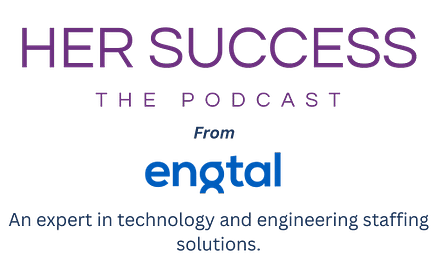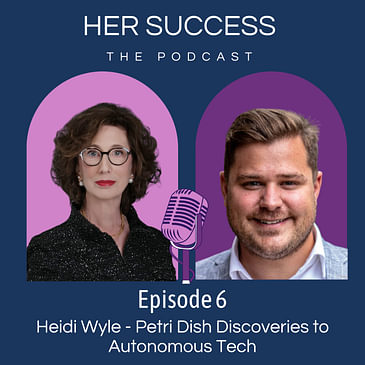Heidi Wyle is the CEO and Founder of Venti Technologies; from a lower socio-economic background, she excelled through her love of learning, achieving a bachelor's from Brown, an MBA from Harvard, and a Ph.D. from MIT.
She started in biotech when the industry was in its infancy, and following three successful business exits she moved into autonomous tech, founding Venti. Her journey is a testament to the power of perseverance, the pursuit of knowledge, and the importance of embracing diversity in the workplace.
Heidi's story inspires aspiring leaders everywhere, and why her company mission has always been to improve the world.
She talks about the grit gene and emphasizes the need for curiosity, resilience, and the willingness to listen and learn from those around you, including younger generations.
This episode explores:
- Heidi Wyle's background and journey as a founder
- Empowerment and the importance diversity in the workplace
- Challenges and lessons in managing diverse teams
- Balancing career and family as a woman in leadership
- Future of autonomous vehicles and impact on the environment
About Heidi Wyle
Heidi Wyle is a pioneering entrepreneur and visionary leader, renowned for her exceptional business achievements and groundbreaking innovations in technology startups. As the Founder and CEO of Venti Technologies, a global leader in AI-powered autonomous vehicle logistics, Heidi has propelled the company to unprecedented success, revolutionizing transportation with cutting-edge technology.
Prior to Venti, Heidi has founded and led a number of biotech organizations, securing significant venture capital, driving growth, and leading them to successful acquisitions.
In addition to her entrepreneurial pursuits, Heidi is dedicated to mentorship and serves on various high-profile boards, including her role as Governor for the HBS Association of Boston. Her academic background includes a Bachelor of Science with Honors in Physics from Brown University, a Doctor of Philosophy and a Master of Science in Health/Medical Physics from MIT, and an MBA from Harvard Business School.
Heidi Wyle's remarkable leadership, coupled with her ability to inspire teams, continues to shape the landscape of technology and entrepreneurship, driving impactful change across industries.
About Engtal
HerSuccess is brought to you by Engtal. Engtal is a US-based staffing agency specializing in engineering and technology, with a commitment to diversity, equity, and inclusion. Part of our mission is to balance the diversity scales in our industry.
We are so tied to this mission that we donate a thousand dollars from every underrepresented placement made to our nonprofit, Diversify the Future. We then use that money to fund scholarships for underrepresented groups to help them obtain a STEM degree. If you are an engineer or a tech professional looking for a new position, or you are hiring talent in this space and want a recruitment partner, please get in touch.
engtal.com | LinkedIn | Instagram | Youtube
diversifythefuture.com | LinkedIn | Instagram




